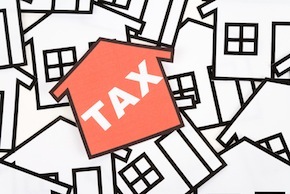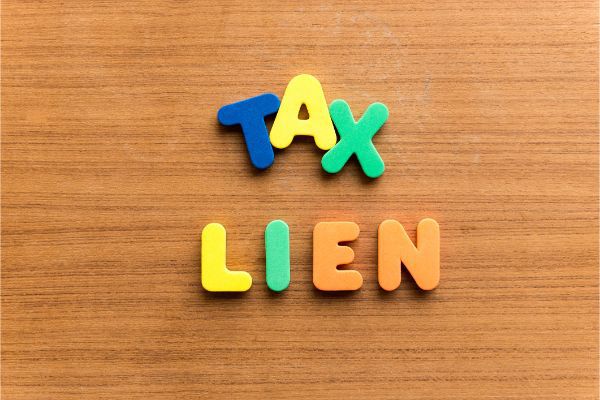All Categories
Featured
If you are interested in the tax lien foreclosure procedure, you must speak to a lawyer so you comprehend and weigh the risks of this sort of financial investment. - what is tax lien investing
Tax lien sales are one way that cities and regions try to recoup some of the general public bucks they've invested keeping these properties deserted by personal proprietors. As we'll clarify in this write-up,. Once real estate tax are considered overdue, local governments normally concentrate on supplying notice of delinquency and trying to collect the overdue quantities from the owner.
This procedure typically takes years - tax lien investing course. If a proprietor has walked away and is reluctant to pay taxes or preserve the residential or commercial property, the city has to invest tax dollars to maintain the residential property. These costsboarding up the structure, cutting overgrown turf and weeds, replying to fire and police calls on the residential or commercial property, and moreadd up

Owners who have actually fallen on difficult times definitely require every effort to keep them out of delinquency and in their homes. Yet typically, if the residential or commercial property is uninhabited and scrubby, we must think the owner has actually picked to desert their rate of interest in the building and that they are "resistant" to pay (though circumstances earlier in the process may have forced their hand).
What Is Tax Lien Investing
Take, as an example, a single-family home where the proprietor has actually long given that walked away. For many years the city government has actually had to step in and get rid of trash unloaded in the yard, board up the doors and home windows, and react to calls concerning illegal activity on the residential property. All these services set you back the city government taxpayer dollars.
In several states, those prices can be accumulated in the same fashion as the unsettled taxes, yet not in all. In a tax obligation lien sale (or tax certification sale) the local government usually holds a public auction where the winning bidder concurs to pay the most money for the right to impose the tax obligation lien, beginning with a minimal quote of at the very least the taxes owned, plus suitable interest, charges, and costs.

When a federal government sells the tax obligation lien they are generally marketing to an exclusive customer the city government's authority to gather the financial debt in exchange for ahead of time repayment of the tax obligations owed. The customer's acquisition normally includes the ability to make future interest, in addition to recover relevant charges and expenses incurred by the customer, if the homeowner pays the tax debt.
This is, fundamentally, privatization of a core federal government feature: tax obligation collection. Tax lien sales are particularly bad when it involves uninhabited, abandoned, and worn-out buildings due to the fact that they extend the duration prior to a home can be relocated into the hands of a new, a lot more accountable owner. Personal tax lien customers hold the financial debt, however they do not own the titlethe lawful right to possession of the propertyand in several cases, they have no interest in obtaining it.
Tax Lien Invest
Taking into consideration spending plan cuts, city governments in many states have minimized in-house real estate tax collection and enforcement initiatives and looked to tax lien sales as a quick infusion of profits - is investing in tax liens a good idea (tax liens investing risks). Several counties select or are mandated by the state to offer tax obligation liens due to the fact that it contracts out collection and commonly brings in extremely required cash previously in the collection process
By moving the city government's passion in and enforcement of the tax obligation lien to an exclusive customer, city governments shed a lot of their adaptability: versatility to acquire uninhabited homes that the personal market does not desire, or to assist the owner stay clear of losing their building. With uninhabited properties, there is a much greater opportunity that the personal customer isn't thinking about the home itself.
Tax lien sales can trigger harm in historically disinvested areas. In a clinically depressed real estate market, fewer proprietors are able to redeem the quantity of the debt offered to a tax lien buyer. These areas are ripe for a various type of tax obligation lien investorspeculative proprietors seeking to acquire buildings on the economical by confiscating on the real estate tax lien, milking what little equity is left by renting out a subpar building to susceptible tenants, and after that deserting the building when they've gained back their financial investment.

Not all state regulations offer neighborhood federal governments the power to interfere in this cycle. In any case, the residential property stays vacant and in limbo, all the while imposing significant costs on its neighbors and taxpayers. It's easy to understand that many local governments turn to tax obligation lien sales due to the fact that they help money vital civil services.
If the local federal government rather offers the residential or commercial property (also known as the "tax obligation act"), as opposed to the tax obligation financial obligation, after that they are in control of what takes place to the property and the enforcement process if the owner remains to not pay the real estate tax owed. The federal government will give the owner a reasonable time to pay back the tax obligation debt, after which the federal government will certainly foreclose its rate of interest in the tax lien and the proprietor's right of redemption.
From their inception, these auctions were places for investors to profit through exploitation. In very early 20th-century cities, infamous "tax obligation sharks" like Chicago's Jacob Glos and New york city's Charles Wiltsie generated fortunes by buying up scores of tax obligation liens on properties, charging their proprietors outrageous total up to get rid of the lien, or waiting until the deadline for settlement passed and asserting the act.
How To Tax Lien Investing

Calls to abolish tax obligation lien sales and overhaul tax obligation delinquency legislations have actually periodically emerged. Often, they have actually can be found in action to situations of poor, typically senior house owners who lost their homes to underhanded tax buyers over little tax financial obligations. With a few exceptions, state legislatures have stood up to structural reforms (how tax lien investing works).
Those who have actually repaid their home mortgages (mainly senior citizens or individuals who had inherited a family home) have to likewise find the cash to pay residential or commercial property taxes. This discusses why 70 percent of the homes offered at tax lien sales are owned outright. It is well past time for states to embrace an even more humaneand a lot more effectivesystem for residential or commercial property tax enforcement.
Latest Posts
Government Tax Foreclosure Auction
Delinquent Tax Auction
Outstanding Tax Liens